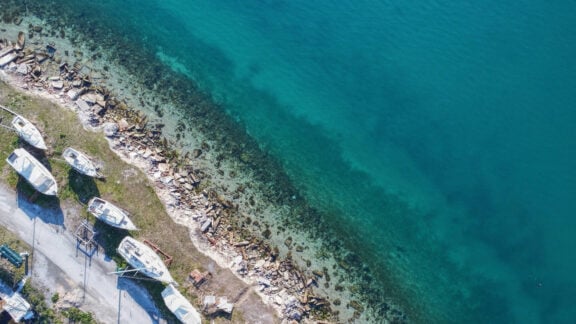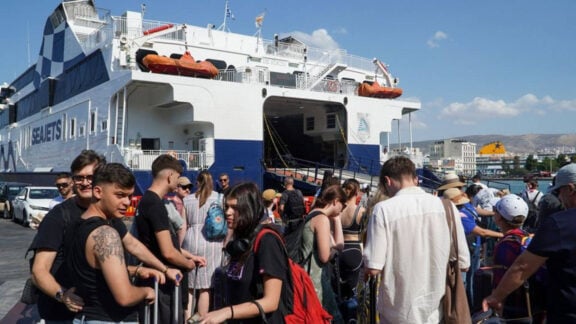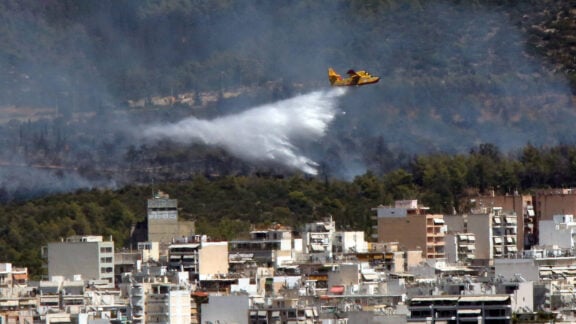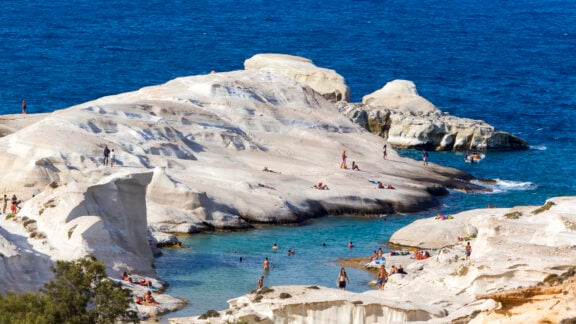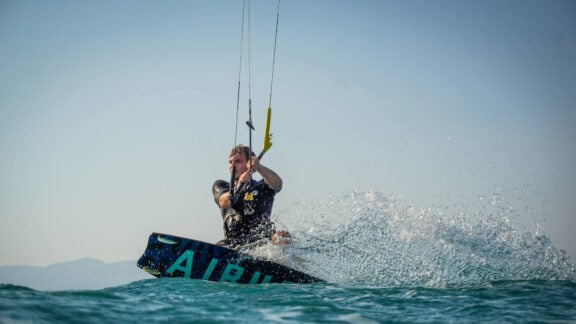Wildfires driven by winds of up to 80 kilometres per hour have destroyed homes and farmland in Keratea, and established olive groves have also been torched. Authorities ordered evacuations of homes and an aged care centre. Police have gone door to door late on Friday night to ensure everyone had left.
As previously reported by Neos Kosmos and other media, the remains of an elderly man were found near Keratea, who was tragically caught in the fire. Hellenic Fire Service spokesman told AFP, on Saturday, “The fire has weakened, but there are still active pockets.”
Other wildfires are also burning across Greece, including near the historic site of Ancient Olympia – the home of the Olympic Games – and on the popular tourist island of Kefalonia.
Coastal winds were forecast to reach 74 kilometres per hour on Saturday, (Greece), ready to fan fires across tinder-dry parts of the nation in the height of summer.
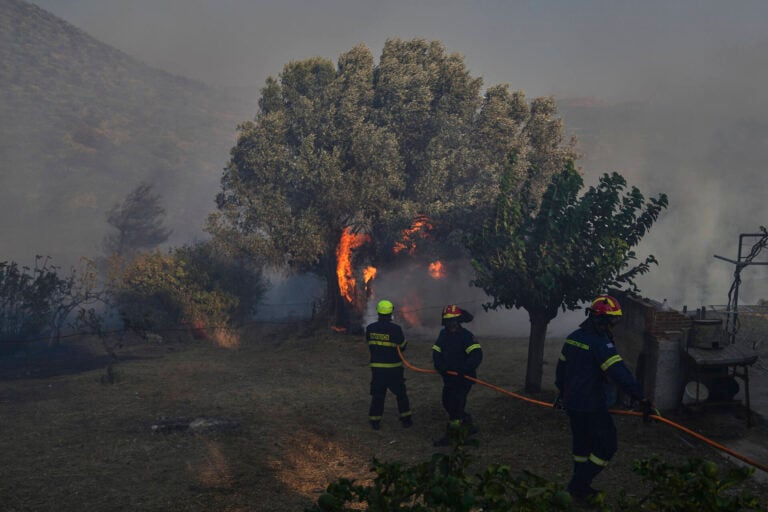
A coastguard spokeswoman said a man and woman had died at the Sarakiniko beach on the tourist island of Milos in the Cyclades. The man and woman were found unconscious in the sea and were taken to the local health centre,” the spokeswoman said.
“They were Vietnamese tourists on a cruise ship group. The woman fell in the water, and the man tried to save her,” she said.
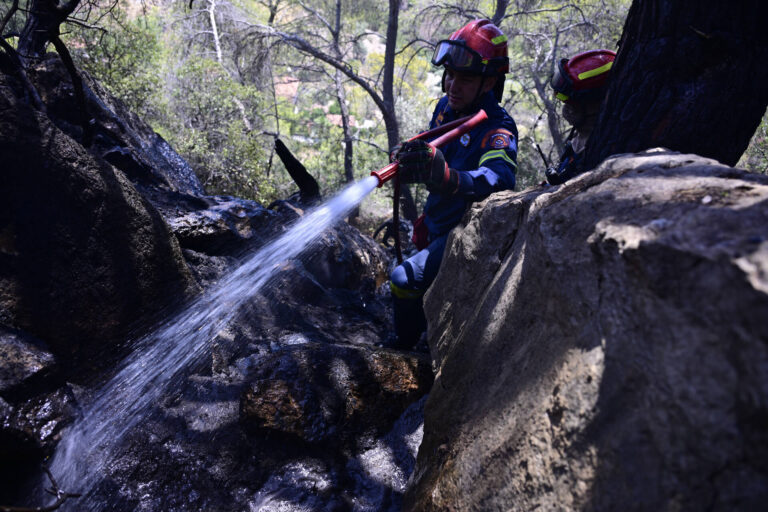
The civil protection ministry said wind gusts would reach 88 kilometres (54 miles) an hour, especially in the southern Aegean and the Sea of Crete. Ferry services for tens of thousands of summer holidaymakers were disrupted by the bad weather.
A temporary ban on ships leaving or arriving at Athens ports was lifted on Saturday.
Wildfires in Turkey close key waterway
Across the border in Turkey, wildfires have forced the temporary closure of the Dardanelles Strait, the vital waterway connecting the Aegean Sea to the Sea of Marmara. Hundreds of residents were evacuated from areas near the fires in the northwestern province of Canakkale.
Wildfires are burning across Greece, including near the historic site of Ancient Olympia – the home of the Olympic Games – and on the popular tourist island of Kefalonia.
Turkey has endured an intense heatwave this summer, with Silopi in the southeast recording a record-breaking 50.5 degrees Celsius (123 Fahrenheit) late last month. July was Turkey’s hottest in 55 years, according to the environment ministry.
Ongoing threats amid dry conditions
Much of the Attica region has had little to no rain for months. Forecasters in both Greece and Turkey warn that wildfire risks will remain high until at least October.
Scientists say climate change has made recent fires more destructive, sparking calls for new approaches to firefighting. Authorities face growing pressure to invest in artificial intelligence and satellite technology to detect fires early.
There are also increasing calls for stronger Mediterranean cooperation — including shared rapid response teams and joint use of water-dropping aircraft — to better tackle these cross-border threats.



